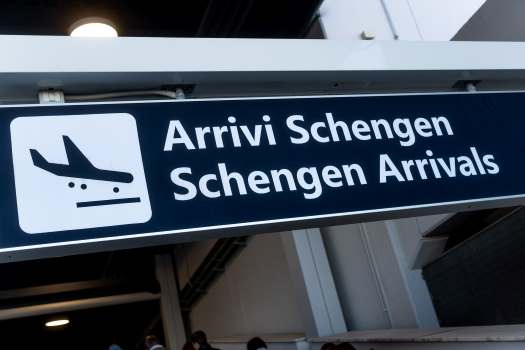Vietnam Travel Requirements: Visa, Documents & Tips Guide
Learn Vietnam's key travel requirements, visa info, essential documents, and tips for a safe and memorable journey. Plan ahead for an unforgettable adventure!
Vietnam Travel Requirements: Visas, Documents, and Must-Know Tips
What Vietnam Travel Requirements Should You Be Aware Of Before Visiting?
Vietnam entices adventurers to experience its natural wonderlands, bustling cities, and profound cultural heritage. From lush jungles and towering mountains in the north to the vibrant metropolises and tropical islands in the south, this vibrant destination awakens all the senses. With such diversity awaiting, planning paves the way for lifetime memories. Let's outline the key Vietnam travel requirements so that you travel with confidence.
Do I Need a Visa to Travel to Vietnam?
The first question on travelers' minds is - Do you need a visa to visit Vietnam? Most nationalities receive an e-visa or visa on arrival for trips up to 30 days. However, these mainly support tourism, so carefully check your plans. Longer volunteer placements, language study, or business meetings require alternative visas obtained well in advance from Vietnamese embassies. Professionals understand your goals and guide you through the application, which takes 4-6 weeks.
For example, teaching English at a rural school necessitates a 'work' visa, while short-term consulting requires a 'business' visa. The Vietnamese government's immigration department thoroughly documents options on its website.
For more detailed guidance, you may visit the Vietnamese government's immigration website or consult your nearest Vietnamese embassy several months before departure to ensure you’re well-prepared.
In just a few seconds, you can get a free quote and purchase the best travel insurance for Vietnam.
What Documents are Part of Vietnam Travel Requirements?
The following are some key documents required to travel to Vietnam. It will be a good idea to keep them ready and carry along on your trip.
-
Valid Passport: The most crucial document is your valid passport, which is six months of validity beyond your return date. The inspection for this is done occasionally by officials, so you must ensure you have the date set up.
-
Visa: If you are not on the visa-free list, you must get a visa before taking the trip to Vietnam, complying with travel requirements for Vietnam. The visa is granted by a Vietnamese embassy stating the dates of your visit and the purpose of your visit.
-
Travel Insurance: While not mandatory, travel insurance that covers - at minimum - medical expenses is highly recommended. AXA Travel Protection is designed expressly for the needs of an international traveler and can cover you for lost luggage, trip cancellation and more.
-
Evidence of onward/return flights: To save yourself a load of questions and formalities, you should provide a return ticket with the essential details about your trip, including your flight plans and when you intend to leave.
-
Travel funds: The cost of living in Vietnam is around $30-40 USD daily. Proof of funds to cover your trip will help show self-reliance and preparedness. You can always present a photocopy of your bank statement.
Am I Eligible to Travel to Vietnam?
Ensure you meet these key entry requirements:
-
Visa Requirements: Depending on your nationality, you may need to obtain a visa before traveling to Vietnam. Research and apply for the appropriate visa well in advance of your trip. The visa application process can be time-consuming, so planning is essential. Visa options may include a tourist visa, business visa, or other specialized visa category.
-
Passport Validity: Your passport must be valid for at least six months beyond your planned stay in Vietnam. This is an essential requirement for entry, as immigration authorities will not allow you to enter the country with a passport set to expire soon.
-
Proof of Onward Travel: You may need evidence that you have plans to depart Vietnam, such as a return flight ticket, before you are allowed to enter the country. This is a measure to ensure you are not attempting to overstay your visa or immigrate illegally.
-
Health and Safety Protocols: Depending on the current public health situation, vaccination or testing mandates may be in place. Check the latest travel advisories from trusted sources like the U.S. Department of State before your trip so you can ensure you fulfill any COVID-19 or other health-related entry requirements.
Things to Avoid When Traveling to Vietnam
For a memorable trip, you must stay mindful to avoid the following:
-
Carrying Large Amounts of Cash: It's best to use credit/debit cards for larger purchases and keep cash on hand only for small, day-to-day expenses. Large cash amounts can make you a target for theft, as carrying significant sums of local currency on your person can draw unwanted attention from potential criminals.
-
Flaunting Expensive Belongings: Avoid drawing attention to expensive jewelry, electronics, or other valuables that could attract unwanted interest from potential thieves. Keep your most valuable items secure, whether in a money belt worn under your clothing, a crossbody bag close to your body, or a hotel safe.
-
Wandering Alone at Night: Stick to well-lit, populated areas, especially in the evenings. Solo nighttime wandering increases the risk of getting lost or encountering trouble, as Vietnam, like many destinations, has less safe areas for unaccompanied travelers, particularly after dark.
-
Photographing Restricted Sites: Be mindful of areas where photography is prohibited, such as military installations or government buildings. While Vietnam is generally quite open to tourists, specific sites and subjects are still off-limits or restricted.
Tips for Traveling to Vietnam
Apart from meeting the basic Vietnam travel requirements, there are a few more things that can help improve your trip experience.
-
Familiarize Yourself with Local Etiquette: Take the time to learn about proper etiquette around elders, acceptable public conduct, and appropriate gestures. Understanding and respecting Vietnamese cultural norms can go a long way in showing respect and avoiding inadvertent offense.
-
Use Reputable Tour Operators: For any activities, day trips, or excursions you plan to take, it's worth researching to find established, trustworthy tour companies like Contiki and Hoi An Express. While the cheapest option may be tempting, working with a reputable provider can ensure your safety and provide a high-quality experience, especially for adventure activities or visits to remote areas.
-
Pack lightweight clothing: When it comes to your wardrobe, it's best to be on the side of lightweight clothing. The tropical climate means lightweight, breathable clothing is ideal, but you'll also want to ensure your attire is modest, especially when visiting religious sites or other sacred locations. Avoid anything too revealing or casual, as this can be seen as disrespectful to local customs and traditions.
-
Carry a Small Umbrella or Rain Jacket: Sudden, unexpected rainfall is expected in Vietnam, even during the dry season. A small, portable umbrella or rain jacket can help you stay dry and comfortable when these surprise showers pop up. Being prepared for the unpredictable weather can allow you to enjoy your time better outdoors and continue sightseeing or activities without interruption.
So, there you have the essential tips and insights to make your Vietnam adventure eventful.
With some planning, an open mind, and a sense of adventure, you will have an unforgettable experience exploring this captivating Southeast Asian destination.
This article is for editorial purposes only and is not intended to replace the advice of a qualified professional. Please contact AXA Assistance Vietnam if you have any questions. AXA Assistance Vietnam, Inc.© 2023 All Rights Reserved.

Travel Assistance Wherever, Whenever
Speak with one of our licensed representatives or our 24/7 multilingual insurance advisors to find the coverage you need for your next trip. Contact Here



